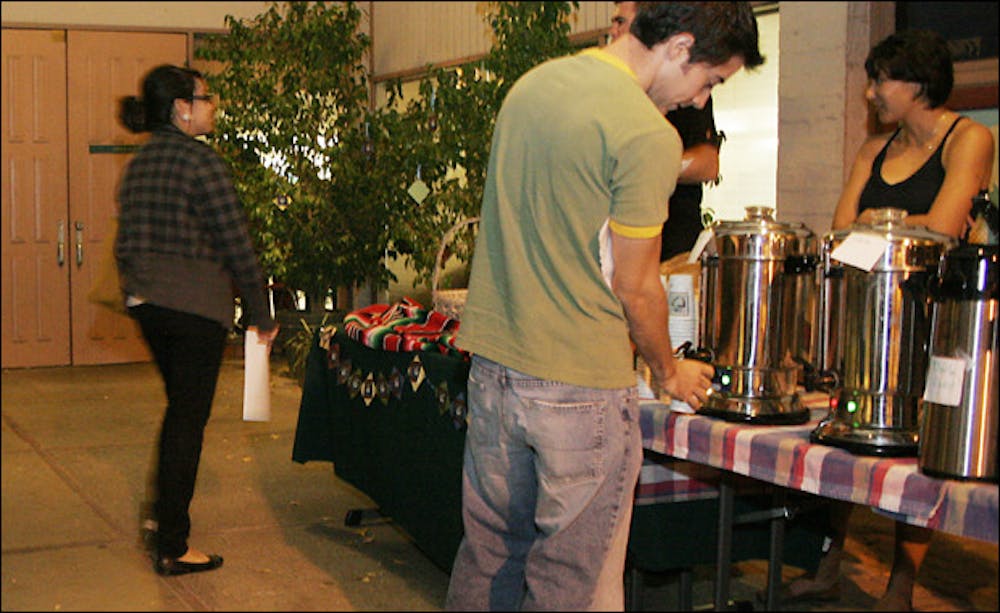Immigration is a hot topic and controversial national issue, but some ASU students believe relief can come in the form of a small, brown bean.
Members of the Newman Center on the Tempe campus kicked off a project Saturday and Sunday to help poor coffee farmers in Chiapas, Mexico make a profit, which could prevent illegal immigration.
The Newman Center is a Catholic organization for ASU students involved in community service.
“Part of what we call ‘Solidarity in a Cup’ is to be in solidarity with people in another part of the world that are really struggling while we live in incredible affluence,” project manager Dean Pedrotti said.
Elsy Escobar is an environmental engineering graduate student and a volunteer on the project.
“It’s not only doing something good for other people; it’s applying social justice principles,” she said.
Escobar said social justice is the idea that justice be applied in every aspect of society rather than just by the administration of law.
The project is to purchase fairly traded coffee from JustCoffee.org, a cooperative of coffee growers based in Chiapas.
“Instead of trying to build a fence to stop people from coming across [the border], we’re doing something a little more active,” said Kent Truckor, minister of the project.
During their kick-off weekend, members of the project sold all 110 of the one-pound bags they purchased from the initiative.
“It’s been very successful so far,” Truckor said. “[The project] has done better than we thought it would.”
For coffee to be fairly traded, Pedrotti said farmers are guaranteed a certain amount of money per pound of coffee greater than the market value.
Truckor said most of immigrants crossing the border aren’t coming to the U.S. out of desire but out of necessity.
“These [immigrants] are just trying to support their families,” he said.
Coffee distribution is a powerful industry, ranking 34th among the world’s largest cash crops, Pedrotti said.
Because of the demand for coffee around the globe, Pedrotti said many producers are large companies and Mexican farmers are leaving the coffee fields because they cannot compete.
JustCoffee is a contained unit, not only owning the fields and raising their own coffee, but also roasting and packaging the beans, which eliminates the middleman, Truckor said.
“This is how they do decent business and provide fair wages for their workers,” he said.
Another aspect of the project is to help educate consumers about the reasons why people in Mexico emigrate.
“If you don’t really know much about the issue, then you have a very slanted perception of it,” Truckor said.
Most people don’t think too deeply about the products they buy on a daily basis, which is part of the problem, Truckor said.
“There’s a story behind every product we buy,” he said. “A small choice to buy fairly-traded coffee versus regularly mass-produced coffee can do a tremendous amount of good.”
For those who are already avid coffee drinkers, buying fair trade
coffee makes a person a more conscientious consumer, Truckor said.
Newman Grounds will sell one-pound bags for $9 after mass every second and fourth weekend each month in the courtyard of the Newman Center.
“You by no means have to be Catholic or even religious to participate in this because what’s most important is helping other people,” Truckor said.
Reach the reporter at jodi.cisman@asu.edu.




